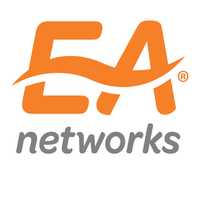Related Research Articles
Electronic warfare (EW) is any action involving the use of the electromagnetic spectrum or directed energy to control the spectrum, attack an enemy, or impede enemy assaults. The purpose of electronic warfare is to deny the opponent the advantage of, and ensure friendly unimpeded access to, the EM spectrum. EW can be applied from air, sea, land, and/or space by manned and unmanned systems, and can target humans, communication, radar, or other assets.
SWEB Energy, formerly South Western Electricity Board (SWEB) was a British state-owned regional electricity company operating in South West England which was privatised by the Thatcher government. Although sold many times, the 'SWEB' brandname survived until 2006.

Hydroelectricity, or hydroelectric power, is electricity produced from hydropower. In 2015, hydropower generated 16.6% of the world's total electricity and 70% of all renewable electricity, and was expected to increase by about 3.1% each year for the next 25 years.
EA is an acronym for Electronic Arts, an American video game company.

A radio teleswitch is a device used in the United Kingdom primarily to allow electricity suppliers to switch large numbers of electricity meters between different tariff rates, by broadcasting an embedded signal in broadcast radio signals. Radio teleswitches are also used to switch on/off consumer appliances to make use of cheaper differential tariffs such as Economy 7.
EDF Energy is a British integrated energy company with operations spanning electricity generation and the sale of natural gas and electricity to homes and businesses throughout the United Kingdom. It employs 13,331 people, and handles 5.7 million customer accounts.
E.ON UK is a British energy company. E.ON UK is the largest supplier of energy and the largest supplier of renewable electricity in the UK, following its acquisition of npower. It is a subsidiary of E.ON of Germany and one of the Big Six energy suppliers. It was founded in 1989 as Powergen, and was listed on the London Stock Exchange and was once a constituent of the FTSE 100 Index. It has been a subsidiary of E.ON since 1 July 2002.
Distribution network operators (DNOs) are companies licensed to distribute electricity in Great Britain by the Office of Gas and Electricity Markets.
Ecotricity is a British energy company based in Stroud, Gloucestershire, England, specialising in selling green energy to consumers that it primarily generates from its 87.2 megawatt wind power portfolio – the company prefers the term windmill rather than wind turbine. It is built on the principle of heavily reinvesting its profit in building more of its own green energy generation.
ENTSO-E, the European Network of Transmission System Operators, represents 42 electricity transmission system operators (TSOs) from 35 countries across Europe, thus extending beyond EU borders. ENTSO-E was established and given legal mandates by the EU's Third Package for the Internal energy market in 2009, which aims at further liberalising the gas and electricity markets in the EU.

The potential for exploiting geothermal energy in the United Kingdom on a commercial basis was initially examined by the Department of Energy in the wake of the 1973 oil crisis. Several regions of the country were identified, but interest in developing them was lost as petroleum prices fell. Although the UK is not actively volcanic, a large heat resource is potentially available via shallow geothermal ground source heat pumps, shallow aquifers and deep saline aquifers in the mesozoic basins of the UK. Geothermal energy is plentiful beneath the UK, although it is not readily accessible currently except in specific locations.
The CRC Energy Efficiency Scheme was a mandatory carbon emissions reduction scheme in the United Kingdom which applied to large energy-intensive organisations in the public and private sectors. It was estimated that the scheme would reduce carbon emissions by 1.2 million tonnes of carbon per year by 2020. In an effort to avoid dangerous climate change, the British Government first committed to cutting UK carbon emissions by 60% by 2050, and in October 2008 increased this commitment to 80%. The scheme has also been credited with driving up demand for energy-efficient goods and services.

The Eugene Green Energy Standard was an international standard to which national or international green electricity labelling schemes could be accredited to confirm that they provide genuine environmental benefits. It was designed to encourage the generation and use of additional renewable energy sources for electricity generation, although the limited use of additional natural gas-fired cogeneration plant was also supported. Initially funded in part through the EU's clean-e programme, but also including some participants from outside Europe, the Eugene standard was formally discontinued after February 2009.
The electricity sector in New Zealand uses mainly renewable energy sources such as hydropower, geothermal power and increasingly wind energy. 82% of energy for electricity generation is from renewable sources, making New Zealand one of the lowest carbon dioxide emitting countries in terms of electricity generation. Electricity demand has grown by an average of 2.1% per year from 1974 to 2010 but decreased by 1.2% from 2010 to 2013.

Electricity Ashburton Limited, trading as EA Networks is a co-operatively-owned electricity distribution company, based in Ashburton, New Zealand.
The Energy Networks Association (ENA) is the industry body funded by UK gas and electricity transmission and distribution licence holders.
Electric Kiwi is an independent online New Zealand electricity retailer.
The Eastern Africa Power Pool (EAPP), is a collaborative effort by eleven countries in Eastern Africa to interconnect their electricity grids and take advantage of excess capacity within the network and facilitate trade of electric power between the members.
References
- ↑ "EA - Electricity Association". ManagEnergy . Retrieved 19 October 2016.
- ↑ SAFEELEC 2010, Energy Networks Association, March 2004
- ↑ Jeremy de Souza; John Snape (28 January 2013). Environmental Taxation Law: Policy, Contexts and Practice. Ashgate Publishing, Ltd. pp. 158–. ISBN 978-1-4094-9317-4.
| | This article related to the history of the United Kingdom or its predecessor states is a stub. You can help Wikipedia by expanding it. |